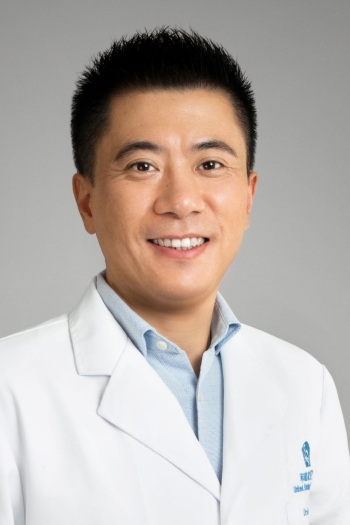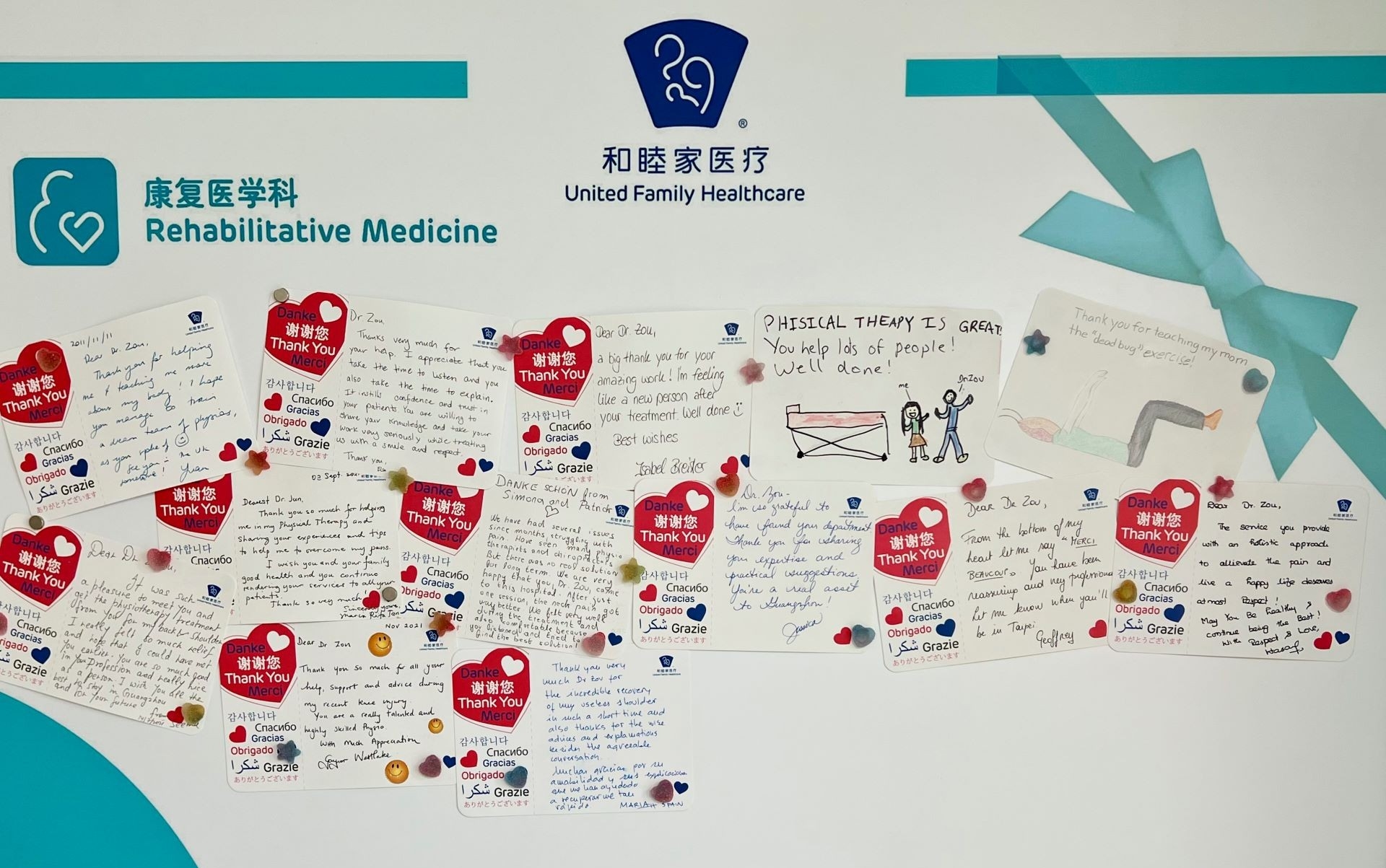On a board inside the Guangzhou United Family Hospital in southern China is an array of thank-you notes. One says, “I’m feeling like a new person after your treatment.” Another: “Amazing! Amazing! Amazing!”
Addressed to physiotherapist and Concordia graduate Jun Zou, BSc 17, the notes represent the culmination of a unique journey.
Zou studied clinical medicine at Nanjing University in China, graduating in 2001 with a master’s degree specializing in orthopedic surgery. He worked various medical jobs for 10 years before moving to Canada in 2011. As an immigrant in Montreal, Zou faced an obstacle familiar to many: he wasn’t accredited as a physician.
He took jobs in restaurants and warehouses while figuring out his next move. “I realized no matter what you do, if you have a warm heart to help people, you can do it in different ways.”
Zou eventually decided to pursue athletic therapy at Concordia in 2012. By then, he was in his late 30s and the oldest student in the classroom. Because of his career and experience in China, students would often ask him questions about anatomy and medical terminology. Zou gained something in return, too. “At that time, my English wasn’t great, but I was happy to answer their questions. By doing so, I improved my English. They were helping me as well.”
He also credits his time at Concordia for cultivating his approach to physical therapy. “It’s holistic. We treat people as a whole human being, not just as a part,” he says. If a patient comes in with knee pain, for example, Zou considers why the body has changed to produce that pain and how the problem may not be the knee itself, but caused by the pelvis or misalignment of the spine.
Zou practices what he calls an individualized concept. “Everyone has a different history of injury. Everyone has a different pattern of movement, walks differently. So you have to assess each individual in a personalized way and consider those components.”

 “We treat people as a whole human being, not just as a part,” says Jun Zou, BSc 17.
“We treat people as a whole human being, not just as a part,” says Jun Zou, BSc 17.
 A wall of thank-you notes from Zou’s patients
A wall of thank-you notes from Zou’s patients